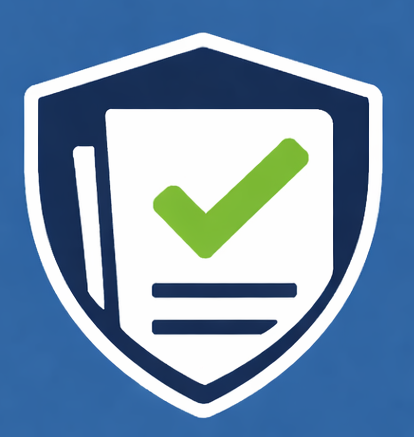Which Cybersecurity Certification Is Right for You?
Which Cybersecurity Certification Is Right for You?
The cybersecurity field is booming, and certifications have become one of the fastest ways to prove your skills and land better-paying jobs. But with dozens of options available — from entry-level to expert — it can be overwhelming to know where to start.
This guide breaks down the most popular cybersecurity certifications, who they’re best for, requirements, salary potential, study resources, and how to choose the one that matches your career goals.
Why Cybersecurity Certifications Matter
- Career Advancement: Many employers require or strongly prefer certifications.
- Higher Salaries: Certified professionals earn 10–25% more on average.
- Industry Credibility: Certifications show proven knowledge and commitment.
- Specialization: Certifications help you stand out in niches like penetration testing, cloud security, or risk management.
Entry-Level Certifications (Best for Beginners)
CompTIA Security+
- Cost: ~$404
- Requirements: No prerequisites; recommended 1–2 years of IT experience
- Average Salary: ~$85,000 per year
- Best For: People new to cybersecurity, IT support staff, career changers
- Why Choose It: Covers core security concepts like network defense, cryptography, and risk management
- Career Paths: Security Analyst, SOC Analyst, IT Security Specialist
- Study Resources: CompTIA Security+ Official Guide, Udemy Security+ Course, free practice tests
Certified Ethical Hacker (CEH – Practical)
- Cost: ~$1,199+
- Requirements: 2 years of IT experience recommended (or official EC-Council training)
- Average Salary: ~$105,000 per year
- Best For: Beginners interested in penetration testing and ethical hacking
- Why Choose It: Introduces offensive security concepts; globally recognized
- Career Paths: Penetration Tester, Junior Red Team Member
- Study Resources: CEH Official EC-Council Guide, CEH Practice Labs
Mid-Level Certifications (For Growing Professionals)
CISSP (Certified Information Systems Security Professional)
- Cost: ~$749
- Requirements: 5 years of paid work experience in 2+ CISSP domains (waivers available)
- Average Salary: ~$140,000 per year
- Best For: Professionals aiming for senior or leadership roles
- Why Choose It: Considered the “gold standard” in cybersecurity
- Career Paths: Security Engineer, Security Architect, Information Security Manager
- Study Resources: ISC² CISSP Official Guide, Boson CISSP Practice Exams
CISM (Certified Information Security Manager)
- Cost: ~$760
- Requirements: 5 years in information security (3 in management)
- Average Salary: ~$130,000 per year
- Best For: Professionals moving into governance, compliance, or leadership
- Why Choose It: Less technical, more focused on managing enterprise risk
- Career Paths: Security Manager, IT Risk Manager, Compliance Officer
- Study Resources: ISACA CISM Review Manual, LinkedIn Learning CISM Course
GIAC Security Essentials (GSEC)
- Cost: ~$2,499
- Requirements: No strict prerequisites; some IT experience recommended
- Average Salary: ~$115,000 per year
- Best For: Hands-on practitioners in technical defense roles
- Why Choose It: Widely respected; strong hands-on labs
- Career Paths: Security Administrator, Systems Analyst, Security Consultant
- Study Resources: GIAC GSEC Guide, SANS training programs
Advanced Certifications (For Experts)
OSCP (Offensive Security Certified Professional)
- Cost: ~$1,499 (includes lab access)
- Requirements: Strong Linux, networking, and penetration testing knowledge
- Average Salary: ~$120,000 per year
- Best For: Penetration testers and red team operators
- Why Choose It: 24-hour hands-on exam; respected as a real “proof of skill”
- Career Paths: Penetration Tester, Red Team Specialist
- Study Resources: OffSec OSCP, OSCP Practice Boxes
CCSP (Certified Cloud Security Professional)
- Cost: ~$599
- Requirements: 5 years IT/security experience (1 year cloud)
- Average Salary: ~$125,000 per year
- Best For: Security professionals specializing in cloud infrastructure
- Why Choose It: Focuses on cloud security architecture, compliance, and identity
- Career Paths: Cloud Security Architect, Cloud Security Engineer
- Study Resources: ISC² CCSP Study Guide, AWS & Azure Cloud Security Courses
Cybersecurity Certification Roadmaps
Choosing the right path depends on your career goals. Here are common certification journeys:
Beginner Path (Start in Cybersecurity)
Security+ → CEH → OSCP
Management Path (Move into Leadership)
Security+ → CISM → CISSP
Cloud Security Path (Specialize in Cloud)
Security+ → CCSP → AWS/Azure Security Specialty
Government/Compliance Path (Work in Fed/Gov roles)
Security+ → CISSP → CISM/CRISC
Quick Comparison
| Certification | Level | Cost | Requirements | Average Salary | Career Paths |
|---|---|---|---|---|---|
| Security+ | Entry | $404 | None (1–2 yrs IT recommended) | $85K | SOC Analyst, Security Specialist |
| CEH | Entry | $1,199 | 2 yrs IT or training | $105K | Pen Tester, Jr. Red Team |
| CISSP | Mid | $749 | 5 yrs security experience | $140K | Security Architect, Manager |
| CISM | Mid | $760 | 5 yrs (3 in management) | $130K | Risk Manager, Compliance |
| GSEC | Mid | $2,499 | IT experience recommended | $115K | Security Admin, Consultant |
| OSCP | Advanced | $1,499 | Strong technical background | $120K | Pen Tester, Red Team |
| CCSP | Advanced | $599 | 5 yrs IT (1 cloud) | $125K | Cloud Security Engineer |
Choose The Right Certification
The right cybersecurity certification depends on your background and career path. If you’re new, start with Security+. If you’re aiming for leadership, CISSP or CISM open executive doors. For specialists, OSCP or CCSP provide deep expertise that employers pay top dollar for.
Pro Tip: Certifications are powerful, but pairing them with hands-on labs, home labs, and real-world projects makes you truly stand out in the job market.
FAQs About Cybersecurity Certifications
1. Which cybersecurity certification is best for beginners?
CompTIA Security+ is the most popular entry-level cert. CEH is also common for those interested in ethical hacking.
2. Which cybersecurity certification pays the most?
CISSP holders average ~$140,000, while cloud certs like CCSP can reach ~$125,000+.
3. Do you need a degree to work in cybersecurity?
No — many professionals enter through certifications plus hands-on practice. A degree can help but isn’t mandatory.
4. Is CISSP harder than CEH?
Yes. CISSP requires years of experience and broad knowledge across multiple domains. CEH is more accessible for beginners.
5. How long does it take to prepare for Security+?
Most candidates need 2–3 months of study, depending on experience.
6. Do government jobs require specific certifications?
Yes. DoD 8570/8140 compliance often requires Security+, CISSP, or CISM for certain roles.







